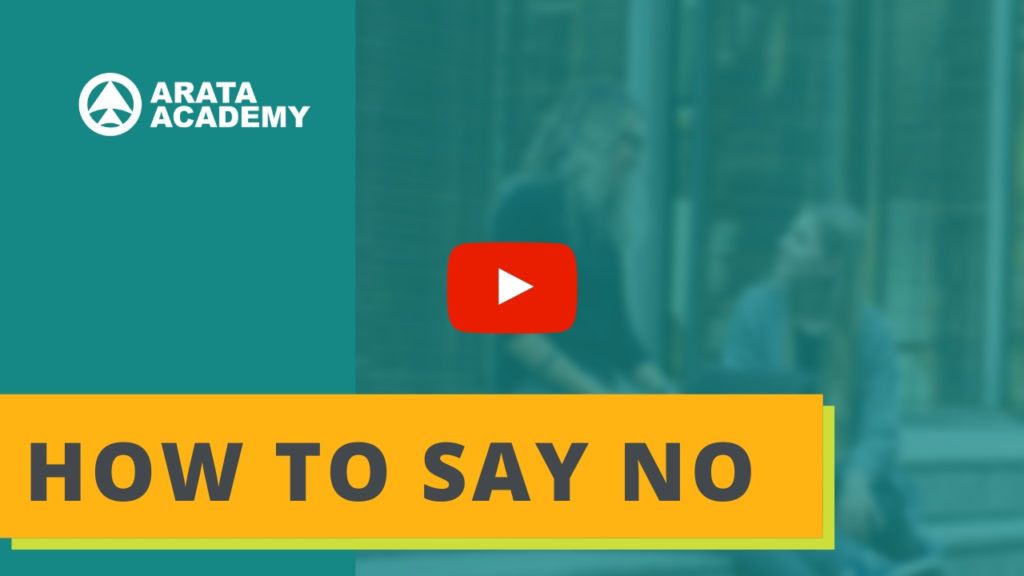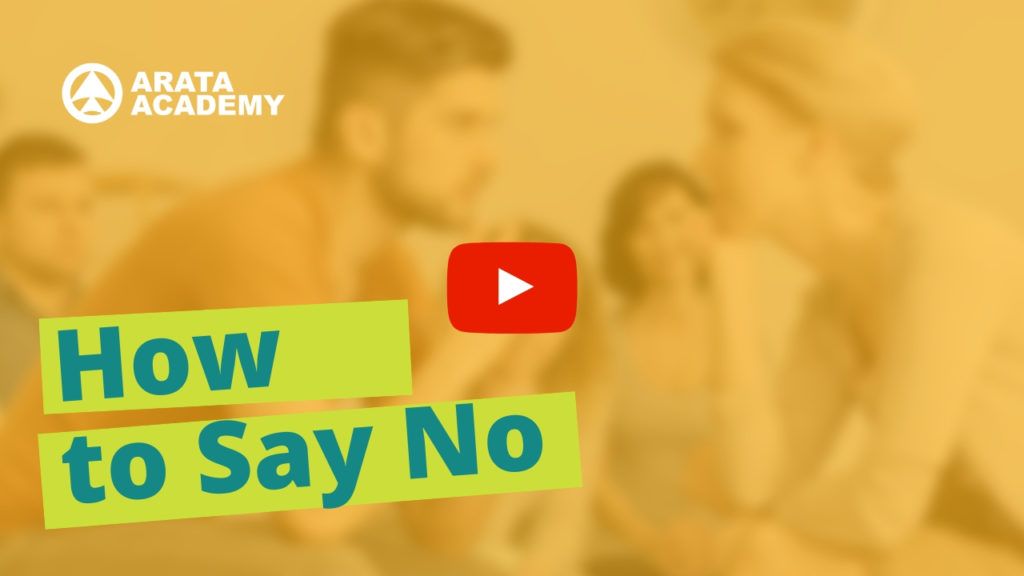Productivity Arata! Today we talk about the story of Cristina.
Cristina was 35 years old and had always spent Christmas with her parents since she was a little child. She’d always had an excellent relationship with her parents—there was much love in this family. So much love, in fact, that sometimes Cristina felt suffocated. For example, for some years she had wanted to travel with friends and enjoy a long trip over the Christmas holidays. But she felt she could not say NO to her parents; maybe they could not accept that she would rather be with her friends than with her family.
And over the years, a strange feeling began to grow within Cristina: a kind of resentment. She kept going every year to spend Christmas with her parents, but occasionally she would be feisty or in a bad mood. A certain bitterness would appear suddenly in her attitude. And this was not one of her natural behaviors—she was never like that. She herself was surprised at this passive-aggressive behavior.
So my question to you, which is the focus of this Productivity Arata video today, is:
– HAVE YOU CHANGED YOUR OPINION TO PLEASE PEOPLE… AND FELT BAD ABOUT IT LATER? If you want to tell your story, please feel free to do so in the comments.
Let’s go over some practical tips:
1) Use your reasoning to choose what makes the most sense to you.
Let’s think a little. Does it make sense to change your opinion, to hide your true preferences and intentions … and then feel bad about it? To be bitter and resentful? Wouldn’t it be more genuine to learn to say what you really think and what your true preferences are?
There is discomfort when we make choices that others do not like. But this discomfort is also there when we say YES when we really mean NO. And, worse still, our inner pain, if kept hidden and repressed, can grow and become bitterness, hatred and passive-aggressive behavior. And it can erode relationships.
2) Be prepared to face the pain.
In the case of Cristina, when she finally learned the art of knowing how to say NO, at first it surprised her parents. They asked if everything was okay. They were afraid she was upset about something. This surprise is natural, because it was a change in something that had been traditional. That is, there was a change from what they expected, what had been part of the comfort zone.
More than surprised, they were hurt and sorrowful because they were had been counting on Cristina coming home for Christmas. Her mother had already bought the ingredients to make that special dessert that Cristina was so fond of.
It is important to share our needs with respect and honesty. We must confront the truth in order to grow. No one likes to hear no, but in the end it is good for more authentic relationships. We learn, we grow and we get wiser. Sometimes pain is the best thing that can happen in a relationship.
3) Use empathy to connect.
Cristina used empathy when she talked to parents to understand how they felt.
She also devoted enough time to explain that everything was fine, that she’d loved spending the holidays with her parents in previous years, but this year she felt the need to do something different.
Cristina’s empathy did not make her change her mind to please her parents. She continued to have her own opinion, and she accepted the fact that there would be some pain for her parents in this surprising decision.
So she made very clear that she loved her parents very much, and she was already looking forward to the next opportunity for a visit with them.
Notice how there is a lot of sincerity in this communication model. It allowed for the parents to admit they were sad and disappointed. At the same time, they encouraged Cristina to enjoy the trip, take pictures and then tell them about how it went. In this family, although the parents wished to be together at Christmas, and there was pain in the absence of their beloved daughter, they also respected her choice. Respect is a key concept that we will continue exploring.
Without this sincerity, without genuine communication, people can spend years and years living passive and complacent lives—until they suddenly explode. No one understands what happened. That person was so nice, always said yes to everything, and suddenly they became rebellious and burst. It was as if they became a different person!
It turns out that such people keep things to themselves until they cannot take it anymore.
That’s the danger of extremes: either people establish no limits at all… or the limit appears suddenly and aggressively.
In the course How to Say No, we will learn to set limits with respect and consistency, and naturally that will nurture better relationships. Let’s connect with love, respect and empathy—that means being genuine to ourselves and to our needs.
We’ll discuss what it means to be proactive, to know what we want, what our purpose is, to say yes to what is important to us. If interested, you can register now for the full course using the link – Cheers!

